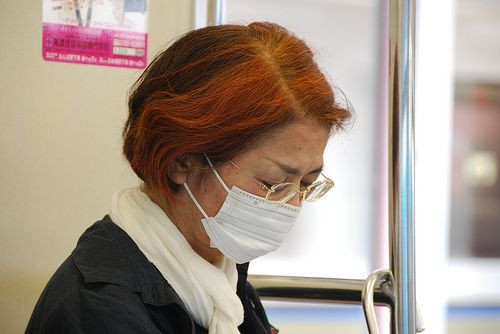The Surprising Cure For Bad Breath: How Halitosis Is Caused And, More Importantly, Treated

Having bad breath is one of the great lasting social faux pas of our day. An amiable conversation can turn into an assault on the senses with one garlicky whiff. However, there are remedies. And one of them just so happens to be one of the largest natural resources on the planet.
Halitosis, the medical term for bad breath, arises from a number of factors. Most basically, it's a combination of good and bad bacteria living inside your mouth that can throw the natural pH balance off-kilter. Foods with strong odors, poor dental hygiene, dry mouth, infections, and tobacco products may also contribute to a person's bad breath. But consider the myriad ways that the embarrassing condition is treated simply by downing a glass of water.
H2O: The Remedy
Water works as a remedy for bad breath because it treats several of the condition's causes — namely, dry mouth, odor-causing bacteria, and can potentially dislodge food particles.
Bacteria that cause bad breath do not live in the mouth by themselves. They cohabitate with non-odor-causing bacteria. However, when the population of odor-causing bacteria outnumbers the non-odor colonies, that's when a person's breath takes a foul turn.
So far, bacterial geneticists from the Human Microbiome Project, which is funded by the National Institute of Health, have identified about 1,000 species of bacteria that reside in the human mouth. But only 10 to 20 percent of those are present at a given time.
"Each person has maybe 100 to 200 of those bacterial species colonizing their mouth at any given time," said Wenyuan Shi, a microbiologist at the University of California, Los Angeles, whose team is currently working on a mouthwash that kills the bacteria responsible for tooth decay.
Outside of the lab, a glass of water can work wonders for a person's breath, especially when the root causes are either dry mouth or residual odorous foods.
When our mouths dry out, either on a hot day or overnight while we sleep, the saliva that normally keeps bacteria at bay diminishes. As a result, the enzymes that would otherwise break down residual food particles — that, admittedly, we may have missed during brushing and flossing — instead remain on our teeth and tongue, leading to dreaded "morning breath."
Gulping down H2O flushes many of the food particles out of the mouth and rehydrates the body, allowing it to produce more saliva that can be used to fight odor-causing bacteria.
Larger Concerns
There are, however, numerous causes of bad breath that are far more serious than the halitosis, making it more of a symptom than its own problem.
Tonsilloliths, or tonsil stones, can form in the back of the mouth when food particles and dead cells collect and bacteria calcify into solid white deposits. Other conditions that cause bad breath include some cancers, acid reflux, and gum disease, according to the Mayo Clinic.
Shi says that daily flossing and brushing still constitute the greatest deterrents to bad breath. However, as he notes, daily rinsing with mouthwash — and now, water — have substantial effects as well.
"I'm one of the lucky ones," said Shi, whose family, he says, reassures him that his breath smells fresh. "My goal is to help other people be lucky, too."
Published by Medicaldaily.com



























